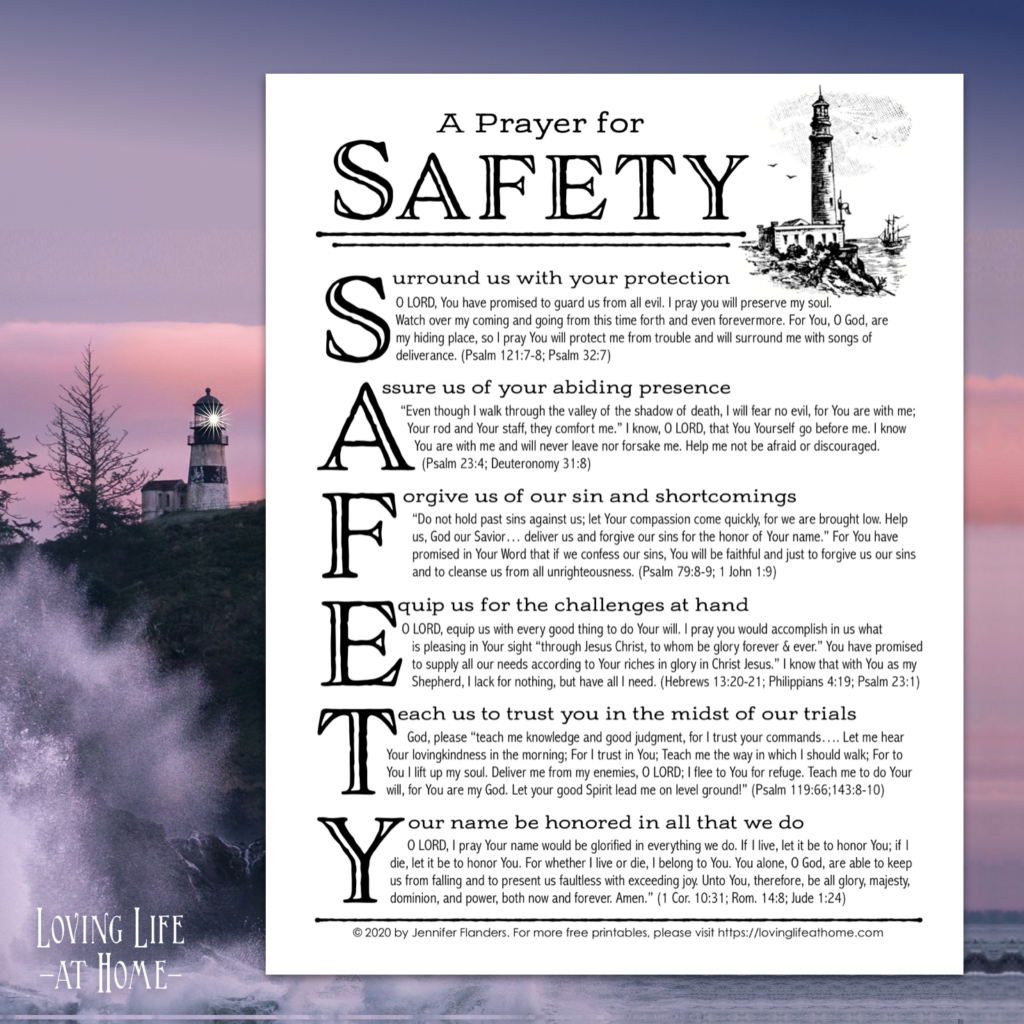In a world rife with uncertainty, how often do we find ourselves seeking solace in the form of protection and safety? This contemplation leads us to the profound teachings of the Bahá’í Faith, which emphasizes the potency of prayer as a means of invoking divine safeguarding. The scriptures are replete with exhortations that inspire followers to turn towards prayer in times of need. In this exploration, we shall delve into the significance of Bahá’í prayers for safety and protection, dissecting their theological underpinnings, practical applications, and the encompassing philosophy that underscores their efficacy.
Bahá’í teachings articulate that prayer serves as a direct channel of communication with the Divine, a means to express our innermost thoughts and invoke the bounteous mercy of God. At its core, prayer is not merely a ritualistic endeavor; rather, it is an authentic expression of the soul’s yearning for connection and guidance. When we find ourselves confronted by existential vulnerabilities, such as fears related to our safety or those of our loved ones, turning to aptly composed prayers can offer a sanctuary of peace.
The Bahá’í Faith teaches that divine protection is extended to those who earnestly seek it. One of the central tenets of this belief is the assurance that sincere prayer can engender a state of spiritual fortitude and resilience. In the act of supplication, individuals nurture their reliance on God, fostering an internal landscape that allows them to navigate life’s tribulations with grace. This reliance is not passive; it actively cultivates a sense of empowerment amidst adversity.
Among the many prayers available within the Bahá’í scriptures, some stand out for their profound emphasis on safety and protection. One notable invocation is a prayer for protection that beseeches divine assistance against malevolent forces and misfortunes. Its rhythmic prose serves to evoke a sense of strength and assurance, reinforcing the belief that, although challenges may arise, a protective shield exists for the faithful. Incorporating such prayers into daily routines can significantly alter one’s perception of vulnerability, transforming anxiety into tranquil resolve.
A noteworthy practice within the Bahá’í community is the recitation of prayers not only for oneself but also for others in moments of peril or distress. Engaging in collective prayer reinforces social bonds and elevates the spiritual consciousness of the community. Inviting friends and family members to join in such supplications magnifies the collective power of intention, thereby amplifying the efficacy of the prayers. This collective approach to prayer embodies the Bahá’í principle of unity, demonstrating that safety extends not only to individuals but to the entire community at large.
Moreover, the teaching that thoughts manifest reality plays a crucial role in the practice of prayer for safety. The Bahá’í writings assert that the mindset of an individual can shape their experiences. Thus, affirming safety through prayer not only seeks divine intervention but also cultivates a mentality that attracts protection and positivity. This concept brings forth a challenge: how can one consistently harness positive thoughts amidst chaos and fear? The answer lies in the steadfastness of one’s prayer practice, which serves as both a shield and a balm for the spirit.
In addition to the traditional prayers, personal supplications are encouraged as they allow for an authentic expression of one’s needs and aspirations. Crafting a heartfelt prayer that resonates with one’s individual circumstances can enhance the spiritual experience, fostering a greater connection with the Divine. Such personal invocations may include specific requests for safety during travels, protection from harm, or safeguarding loved ones during difficult times. This intimate dialogue with God can be immensely comforting, transforming fear into faith.
Furthermore, the Bahá’í perspective on safety extends beyond mere physical well-being; it encompasses emotional and spiritual security as well. Engaging in prayers for protection assists individuals in cultivating inner peace and resilience. By invoking divine aid, one can experience alleviation from anxiety and distress, providing an essential foundation for leading a balanced and fulfilling life. The multifaceted nature of safety, therefore, invites us to examine the interactions between our thoughts, actions, and divine will.
It is important to note that while prayer acts as a powerful tool for invoking protection, followers also bear the responsibility of taking pragmatic steps towards safety. The synthesis of prayer and proactive measures creates a harmonious balance that not only affirms faith but also demonstrates due diligence. Whether it involves practicing safety protocols in daily life or fostering a community of support, the Bahá’í teachings encourage a comprehensive approach to safeguarding oneself and others.
As we conclude this examination of Bahá’í prayers for safety and protection, let us ponder the broader implications of such practices. How can the community at large benefit from these guiding principles, particularly in times of widespread uncertainty? By embedding prayer into the fabric of our lives and communities, we can foster a collective consciousness that actively seeks the well-being of all. In engaging with both the spiritual and pragmatic dimensions of safety, we align ourselves more closely with the essence of Bahá’í teachings, which advocate for unity, compassion, and shared responsibility.
This discourse invites readers to reflect on their own practices concerning prayer and protection. In a world fraught with challenges, it is through the invocation of divine guidance that we can navigate life’s vicissitudes with fortitude and grace. Therefore, may the prayers we recite be a source of strength and safety, guiding us ever closer to the Divine and each other.
